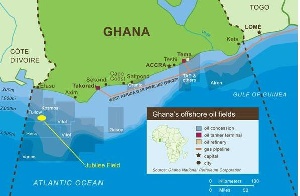With the start of the licensing rounds bid evaluation and negotiation today, government has given a strong indication to only engage oil companies that have the track record to increase the country’s oil activities, Deputy Minister for Energy, Dr Mohammed Amin Adam has said.
This, he said, is to ensure sustainability of jobs in the oil and gas sector.
In the past, some companies which did not have the track record, the funds and the technology to operate efficiently, were awarded blocks.
This, Dr Adam said, led to several years of inactivity, as some oil companies held onto blocks without prospecting for hydrocarbons.
“We have to move away from that practice, and engage companies that have the track record,” he said.
Speaking at the launch of the research conducted by IMANI Ghana, dubbed, ‘Is Ghana Ready for More Local Content?’, Dr Adam said, the way to sustaining jobs in the industry is to increase activities.
“In increasing activities, we have to allocate more blocks to serious companies,” he noted.
It is expected that six out of the nine oil blocks will be put on offer in this licensing round.
Three of these blocks will be allotted through open public competitive tender, while two others will be allocated through direct negotiations.
The remaining one will be reserved for Ghana’s national oil company, the Ghana National Petroleum Corporation (GNPC), to explore in partnership with its chosen strategic partner with the view to developing its technical capacity and becoming an operator.
The focus of this year’s licensing rounds will be on the Western Basin, since there are some existing infrastructures that could facilitate the development of any discovery made in the area.
In 2015, about 4,900 Ghanaians were in employment in the oil and gas industry. This sharply increased to 11, 320 Ghanaians in 2016.
The Minister explained that the level of employment is correlated directly with the level of upstream activity and so the more development of fields going on, the more jobs are created.
Business News of Friday, 7 September 2018
Source: goldstreetbusiness.com

















